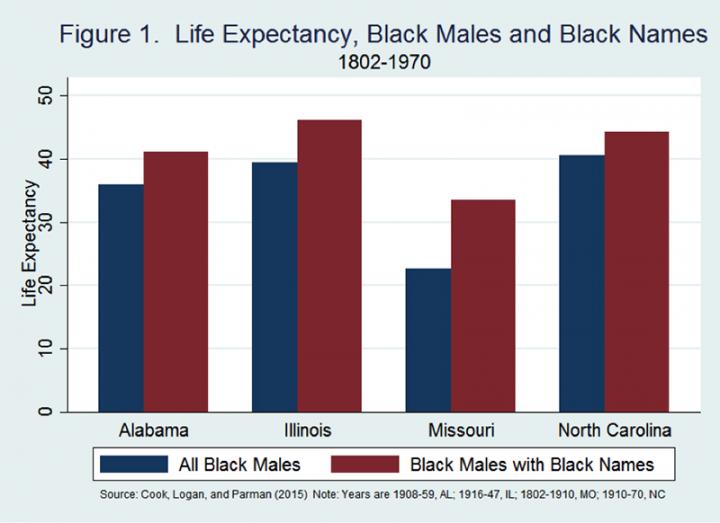[dropcap style=”font-size:100px; color:#992211;”]T[/dropcap]here really shouldn’t be a causal link between your name and your date of death.
Nominative determinism aside (which is unfortunate for those of you called Lemming), our lives should be a clean slate to write our story upon.
Nevertheless, if you have trouble believing that being named Jamal or Lakisha could alter your lifespan, consider something a little easier to grasp: being called Apple is bound to make you miserable.
Black men with historically distinctive black names such as Elijah and Moses lived a year longer, on average, than other black men, according to new research examining 3 million death certificates from 1802 to 1970.
The study, co-authored by Michigan State University economist Lisa D. Cook, is one of the first to find benefits of having a racially distinctive name. Other studies that looked at current black names such as Jamal and Lakisha suggest that having these modern-day monikers leads to discrimination.
“A number of studies indicate that modern black names can act as a burden, whereas our findings show that historical black names conveyed a large advantage over a person’s lifetime,” said Cook, associate professor in MSU’s Department of Economics and James Madison College.
Using historical death certificate data from four states – Alabama, Illinois, Missouri and North Carolina – the researchers previously established the existence of a set of distinctive names given to black men, mainly in the early 20th century. The names range from Abraham to Booker to Isaac.
The current study examined mortality rates among men with those names. It found that having a distinctive black name added more than one year of life relative to other black males. The researchers ruled out socioeconomic and environmental factors such as single-parent households, education and occupation.
“A whole additional year on their lives, in mortality terms, is remarkable,” Cook said. “Even a third of a year is significant.”
Many of the distinctive names come from the Bible and possibly denote empowerment. Cook, who has five generations of Baptist ministers in her family, said one theory is that men with these Old Testament names may have been held to a higher standard in academic and other activities, even implicitly, and had stronger family, church or community ties. These stronger social networks could help a person weather negative events throughout life.
“I think the teachers in these one-room schoolhouses – teachers who also taught Sunday school – probably placed implicit expectations on students with these distinctive names,” Cook said. “And I think that gave them a status that they otherwise would not have had.”
On the contrary, previous research has found that having distinctive modern names such as Tremayne and Tanisha has led to discrimination among job applicants, college students seeking mentors and researchers seeking federal funding. Researchers in the United States, Britain and elsewhere have studied the issue.
“When people see a name that’s foreign or strange to them in their profession, implicitly they shut down, as these studies have shown,” Cook said. “Then there is an extra layer of bias suggesting that this is possibly a female, poor or somehow unqualified candidate. Research has found that in the United States it’s associated with racial discrimination and in Britain it’s associated with class discrimination.”
Source: Eurekalert/Michigan State University

Some of the news that we find inspiring, diverting, wrong or so very right.





















